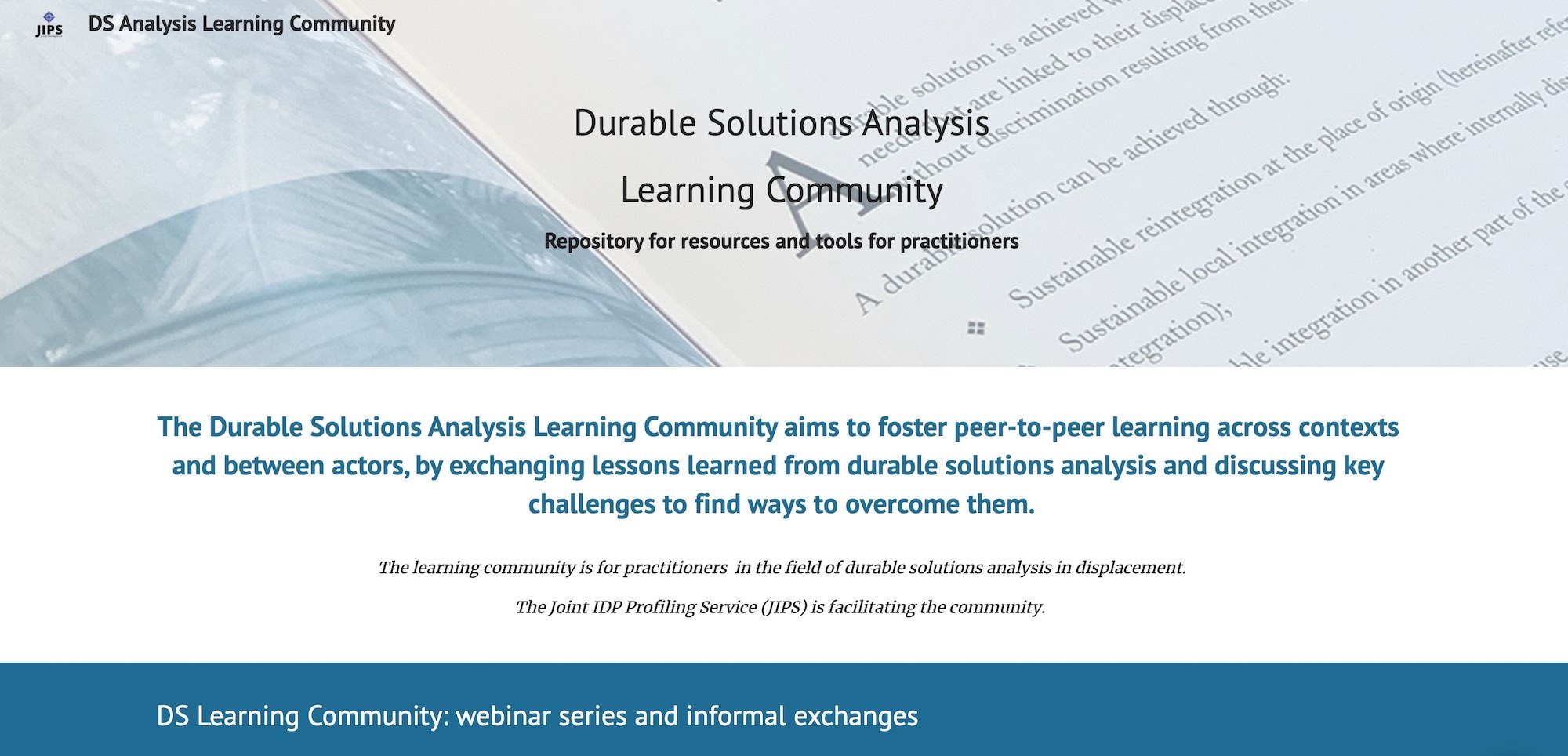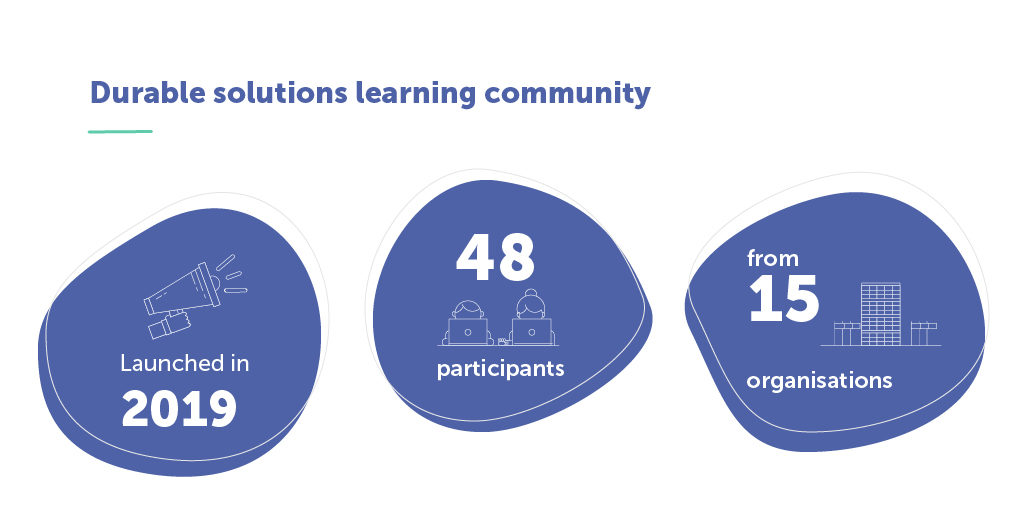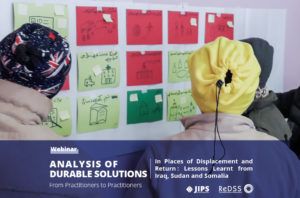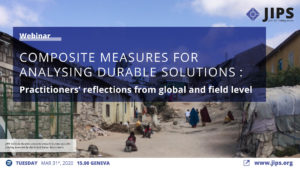At the end of 2019, JIPS launched a learning community on measuring durable solutions to displacement. Increasing efforts are being made in this area; however, conducting durable solutions analyses remains a complex undertaking with many challenges both at technical and practical levels. Thus, our objective was to create a dedicated space that would allow us and other experienced practitioners of durable solutions analysis to discuss available tools and tested approaches.

The learning community constitutes part III of the interagency durable solutions project, a multi-stakeholder initiative initiated back in 2015 and led by the Special Rapporteur on the human rights of IDPs. Made possible through generous funding provided by the United States Government, the learning community looks at different tools and approaches operationalising the IASC Framework on Durable Solutions for IDPs. This includes the Interagency Durable Solutions Indicator Library, the Solutions Framework by ReDSS, the Return Index by Social Inquiry and the longitudinal studies on durable solutions by IOM in Iraq, the Multidimensional Local Integration Index by Samual Hall and others. It offers a distinct forum for enhanced peer-to-peer exchange on experiences and lessons learned across contexts and approaches, to help the broader community improve our practice in this area.

Over the last months – and despite the COVID-19 pandemic – the learning community has grown to 48 participants from over 15 organisations (as of August 2020).
Through a Skype group and webinar series, participants engage actively in the often-technical discussions spanning across conceptual, methodological, as well as operational challenges. Diverse questions are being discussed, such as how to combine indicators into a single index in a methodologically sound way or how to meaningfully compare results from durable solutions analyses over time considering the potential mobility of population groups.
The very first webinar of the learning community was organised in collaboration with ReDSS in December 2019 and looked at durable solutions analyses in three different displacement contexts: Somalia, Sudan, and Iraq. Building on the momentum of the newly endorsed International Recommendations on IDP Statistics (IRIS), the second webinar discussed the use of composite measures developed to measure progress towards durable solutions.


Of a more exploratory and informal nature, our third webinar focused on practices and approaches to analyse local integration in displacement situations. We heard from Samuel Hall about the multidimensional local integration index, and discovered the local integration framework for IDPs developed by Social Inquiry. This led to a rich discussion covering topics such as subjective v. objective measures, multidimensional framework of indicators v. composite indexes, missing elements from the IASC framework to measure durable solutions, and the semantic differences between durable solutions, social cohesion, and local (re-)integration.
We hope that the learning community will help effectively advance our collective practice in the area of durable solutions analysis in displacement contexts. The many discussions that are taking place in the Skype group and during the webinars can also provide useful input for global-level initiatives, including the High-Level Panel on Internal Displacement and the GP20.
“We often do not know about each other’s work, so this is a superb forum” – participant in the learning community on durable solutions analysis
“There is a lot we can learn from each others’ work on measuring solutions, and instead of re-inventing the wheel every time, rather build on the lessons and experience each of us brings to the table” – Margarita Lundkvist Houndoumadi, JIPS
We are currently also working on developing an online repository to make the many useful tools and resources on durable solutions analysis shared by members of the learning community accessible in one place. We are also planning another webinar in our series for later this year and are currently discussing in the community what its specific focus should be.
Want to join the learning community on durable solutions analysis? Get in touch with us at info@jips.org.